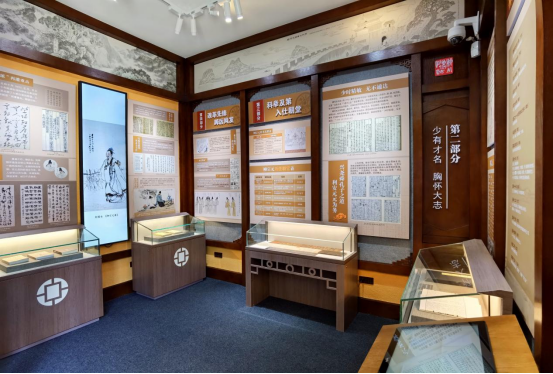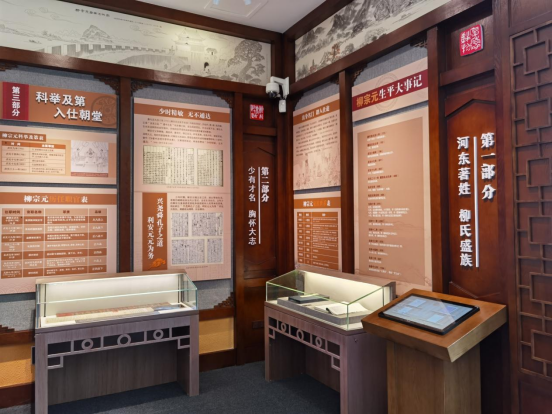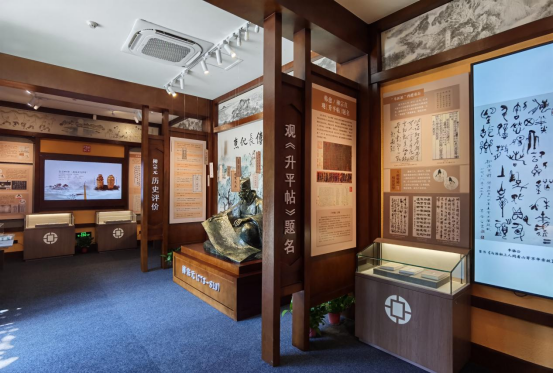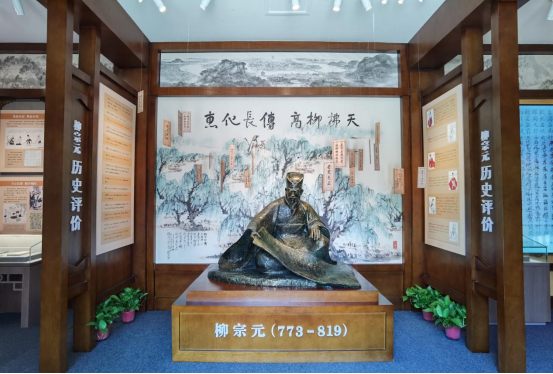
踔厉风发一一柳宗元生平陈列展
Life of Liu Zongyuan
前言
Introduction
柳宗元(773—819),字子厚,祖籍河东(今山西永济),人称“柳河东”,是我国唐代杰出的文学家、思想家、政治家。贞元二十一年(805)参加主张政治革新的王叔文集团,任礼部员外郎。革新失败后,贬为永州司马。元和十年(815)迁任柳州刺史,又称“柳柳州”,四年后辞世于柳州任上。唐长庆二年(822),柳州人民建罗池庙(柳侯祠)以祀。宋崇宁三年(1104),宋徽宗追谥“文惠侯”。明清至今,屡有修葺,代代纪念。
德政四年,文垂千载。作为优秀的文学家,柳宗元和韩愈倡导“古文运动”,提倡古文,反对骈文,从根本上改变了中国古典散文的发展面貌,位列“唐宋八大家”之一;此外,柳宗元还继承和发展了先秦荀况、汉代王充的朴素唯物主义,在中国思想史上起到了承先启后的作用;作为有抱负的政治家,柳宗元主张“立仁义,裨教化”,在柳州刺史任上充分展示了自己忧国思民的治政理想。
柳宗元在文学、思想、政治上的巨大成就,为中华民族优秀传统文化宝库增添了一份极为珍贵的财富。
Liu Zongyuan (773-819), known as "Liu Hedong", was an outstanding literary scholar, thinker and politician of the Tang Dynasty. In the twenty-first year of Zhengyuan (805), he joined the Wang Shuwen party, which advocated political innovation, and became a member of the Ministry of Rites. After the failure of the reformist movement, he was relegated to the post of Secretary of Yongzhou. In the tenth year of Yuanhe (815), he was appointed as the Mayor of Liuzhou. And he died four years later in Liuzhou. In the second year of Changqing of Tang Dynasty (822), the people of Liuzhou built the Luo Chi Shrine (Liuhou Shrine) to commemorate Liu Zongyuan . In 1104, Song Huizong the Kind conferring posthumous title "Wen Hui Hou" to Liu Zongyuan. And from Ming and Qing dynasties till today, people couldn’t forgot what Liu Zongyuan had done for the people of Liuzhou.






